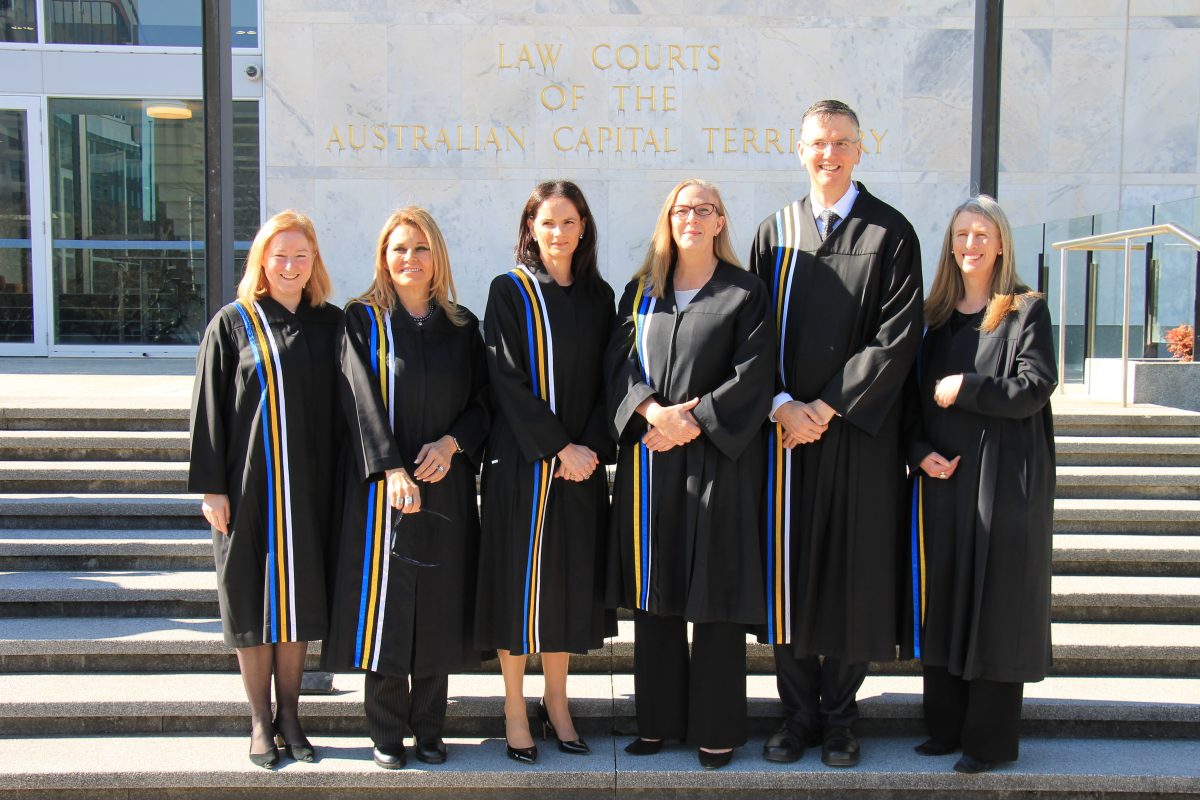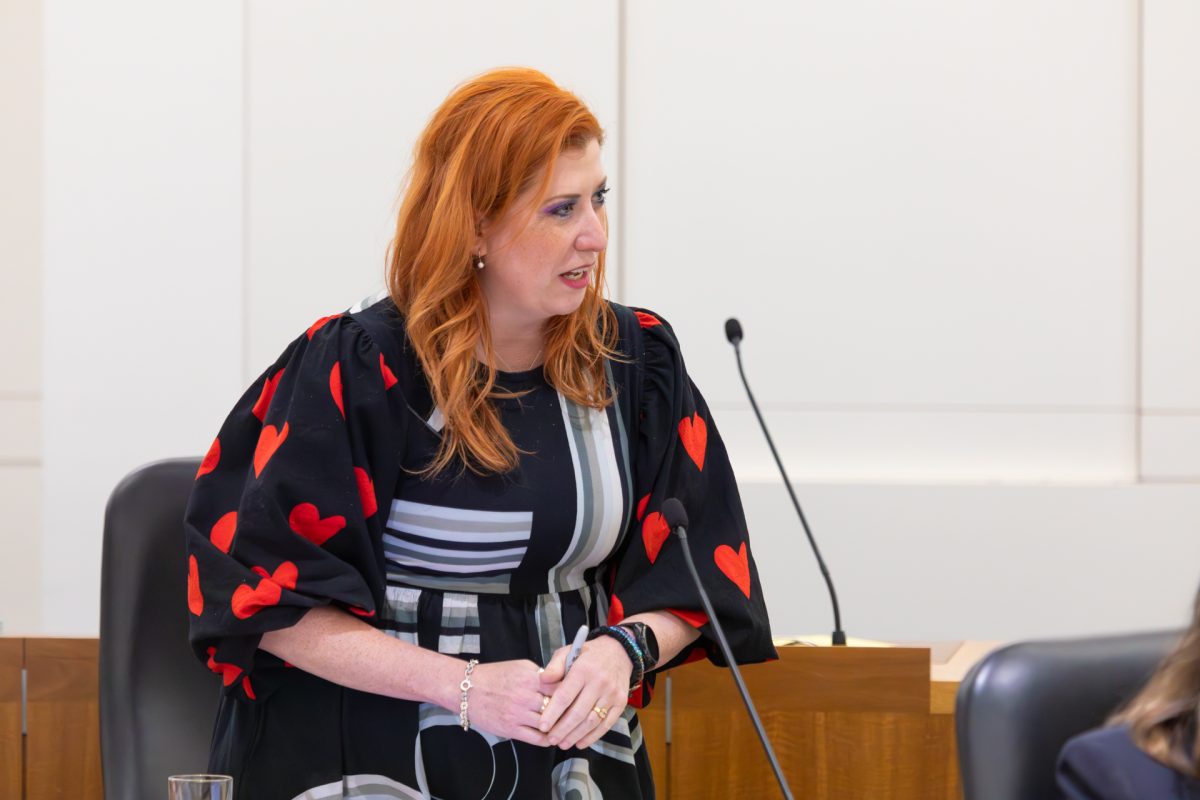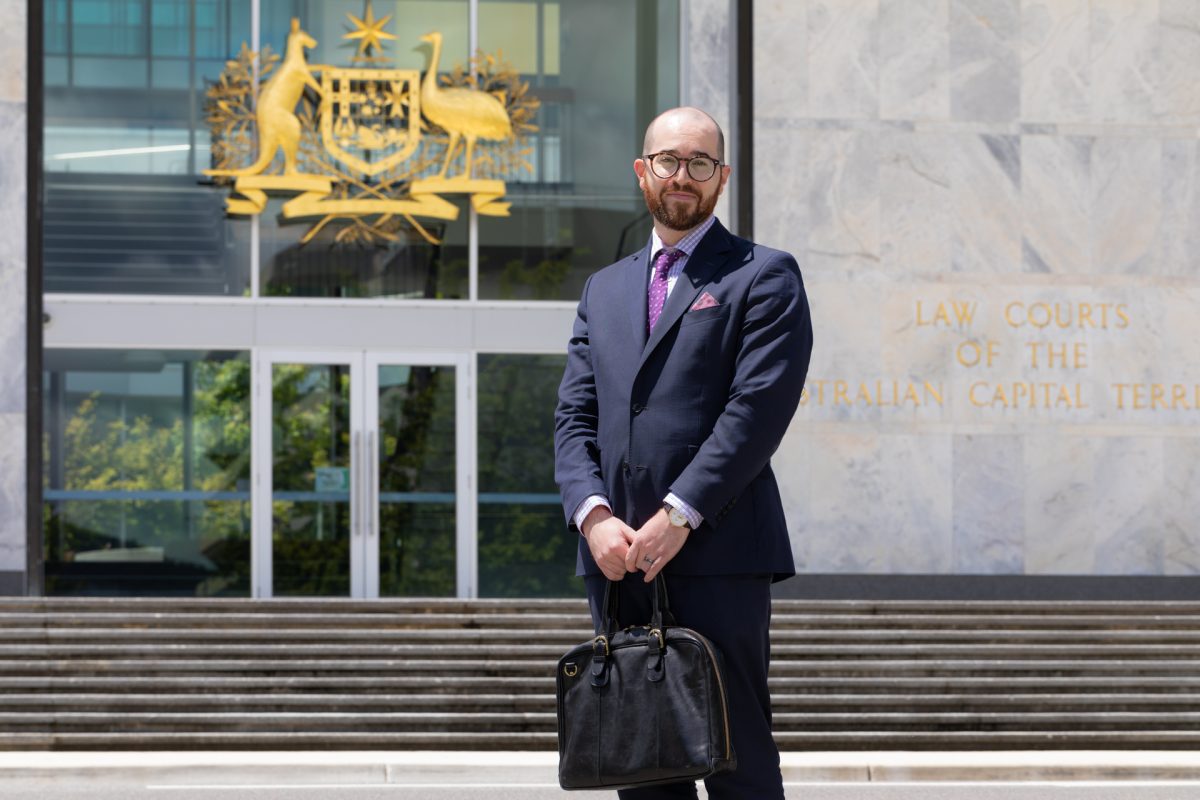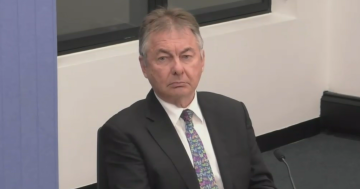
The six ACT Supreme Court judges are (from left) Verity McWilliam, Chrissa Loukas-Karlsson, Louise Taylor, Lucy McCallum, David Mossop and Belinda Baker. Photo: Albert McKnight.
The ACT Supreme Court is facing additional pressure following the unfortunate loss of two judges, and while solicitors in criminal law are concerned about the impact this will have on the justice system, they note that the court already faced resourcing issues prior to the situation arising.
Speaking in the ACT Supreme Court last week, Chief Justice Lucy McCallum said the court was under “extreme pressure” and she was exploring options to get another judge.
“Justice Loukas-Karlsson has been diagnosed with cancer and has been granted medical leave until November,” the chief justice said when contacted by Region.
“Acting Justice Christensen has been appointed as a judge in Papua New Guinea and will finish at the court in mid-July.”
Justice Chrissa Loukas-Karlsson’s cancer diagnosis was reported with her consent.
Acting Justice Rebecca Christensen SC has been overseeing the ACT Drug and Alcohol Sentencing List and will be replaced by Justice Verity McWilliam.
Chief Justice McCallum said Attorney-General Tara Cheyne had been informed of the developments and responded promptly by appointing two additional acting judges who will begin work in June.
“These measures will considerably ameliorate the constraints under which the court is operating,” she said.
“In the meantime, although the court has been operating under these extenuating circumstances, only one trial listed has not been reached and the accused in that matter subsequently pleaded guilty.”
That trial was of Van Thanh Vu, who was originally scheduled to begin earlier this week, before the 70-year-old pleaded guilty to murder on Tuesday.
An ACT Government spokesperson stated that Andrew Muller SC and Patricia Kelly SC were appointed as acting judges for a two-year term in April, while Acting Justice Christensen was also reappointed for an additional two years.

Attorney-General Tara Cheyne responded promptly to the situation in the Supreme Court, the chief justice said. Photo: Michelle Kroll.
Normally, the Supreme Court is made up of the chief justice and five judges, whose work is complemented by acting judges.
“While there are not currently any vacant resident judge positions in the ACT Supreme Court, where a vacancy does arise, the ACT Government will undertake a comprehensive recruitment process to identify a suitable replacement,” the government spokesperson said.
When approached for comment about the current situation, ACT Law Society president Vik Sundar said the society’s members practising in criminal law had expressed concern about the impact of judicial absences on already overstretched court processing times and, more importantly, on access to justice for the ACT community.
“This situation highlights the resourcing pressures facing our courts,” he said.
“The ACT Law Society continues to call on the government to prioritise investment in the justice system — including the immediate need to maintain current judicial numbers and appoint additional judges to meet demand.”

Andrew Byrnes commended “the chief justice and the bench on their amazing efforts to deal with the situation”. Photo: Michelle Kroll.
Andrew Byrnes, the managing partner of Andrew Byrnes Law Group, said criminal defence lawyers who routinely appeared in the Supreme Court understood the difficult resourcing position the court was in.
“[But] I am worried that the current reality may be that those being charged with serious criminal allegations who have been awaiting trial may not reach a trial until next year, and possibly some months into next year,” he said.
He said the Human Rights Act 2004 guaranteed that those accused of criminal offences were to be tried without delay, adding “this is something that the ACT Government must not forget in ensuring the ACT Courts meet this fundamental legislative guarantee”.
When asked if he thought the ACT needed additional judges, Mr Byrnes said if the Office of the Director of Public Prosecutions (DPP) continued to bring the number of cases it was currently bringing to trial, it may become a question of “when” rather than “if” the ACT gets more judges.
“The DPP has the discretion to discontinue prosecutions that have limited prospects of success, and ought to consider cases it brings to trial very carefully; perhaps more than ever in this current court climate,” he said.
Chief Justice McCallum did not comment when Region asked if she thought the court needed an additional judge.
When contacted for comment on the issue, the ACT Government spokesperson said, “The government continues to work with the chief justice to assess the resourcing requirements of the court”.
A call-over of priority criminal trials will take place on 16 June.
Original Article published by Albert McKnight on Region Canberra.




